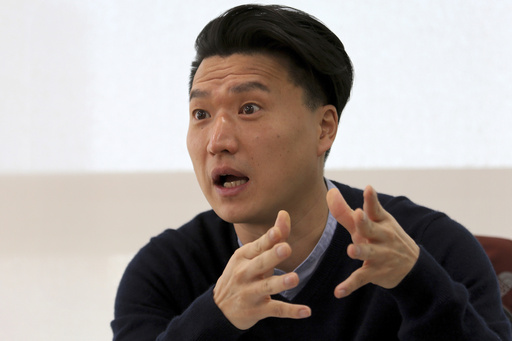
SEOUL, South Korea – Adam Crapser, an adoptee deported to South Korea in 2016 due to his adoptive American parents’ failure to secure his citizenship, publicly criticized both the South Korean government and his adoption agency during a recent appeals court session. His testimony unveils significant flaws in the processes that have affected countless Korean children adopted into American families over the years.
At 49 years old, Crapser’s lengthy legal battle sheds light on the systemic breakdowns of both the U.S. and South Korean governments. He was adopted from Korea by a family in Michigan back in 1979, and he made history as the first Korean adoptee to pursue legal action against both the government and the adoption agency, Holt Children’s Services, seeking reparations in 2019. His case is part of a broader narrative that includes a recent lawsuit from a Korean birth mother contesting her daughter’s adoption in the U.S. in 1976 after the child was abducted at just four years old.
These lawsuits, including Crapser’s, along with a comprehensive investigation into claims made by numerous adoptees suspecting misrepresentation of their origins, are putting increasing pressure on the South Korean government to confront the longstanding issues of fraud and questionable practices that have tainted its adoption system. In his testimony, Crapser accused Holt and the government of serious misconduct that contributed to his distressing experiences in the U.S. He recounted feelings of neglect and abuse at the hands of two different adoptive families, who both failed to apply for his citizenship, leading to his deportation years later.
“Growing up, I didn’t have the chance to choose if I wanted to stay in my homeland,” Crapser stated in the Seoul High Court. “I didn’t grasp the Korean language or culture, nor did I have the option to know my biological family.” He went on to acknowledge his past mistakes, admitting that while he faced challenges in the United States, he tried his best to survive without family ties or a community of Koreans around him.
Crapser expressed deep emotional pain regarding his inability to connect with his two children, particularly a 10-year-old daughter, saying, “I should be in America, living my life there, working. I spent my life in the U.S. trying to build a family.” He lamented that his daughter cannot visit or reside with him in Korea, asserting, “I cannot live a normal life here. I feel like a child trying to adapt to an environment I don’t fit into.”
His attorney, Mina Kim, is seeking 200 million won (approximately $144,700) in damages, asserting that the Korean government and Holt are liable for their roles in what she referred to as an illegal adoption comparable to human trafficking. The court’s ruling is anticipated on January 8.
Crapser’s legal claims suggest that Holt altered his adoption documents to misrepresent him as an orphan, despite the presence of a birth mother, thus subjecting him to unfortunate adoptions by families who were inadequately vetted. Kim argued that government entities should be held accountable for neglecting Crapser’s constitutional rights as a Korean child, citing poorly monitored adoption agencies and a lack of due diligence in ensuring that his adoption was ethically sanctioned and the adoptive parents suitably qualified.
During the hearing, Kim referenced investigative work exposing the persistent abuse and fraud within Korea’s adoption framework and criticized Holt for evading accountability. In contrast, Holt’s representative, Bae Hyeon-mi, maintained that the issues raised were irrelevant to Crapser’s specific case and insisted that Holt had met the requirements of the law at the time.
A lower court had previously ordered Holt to compensate Crapser 100 million won ($72,300) for their failure to inform his U.S. adoptive parents about the additional steps required to secure his citizenship after the adoption was finalized. However, the Seoul Central District Court dismissed most of Crapser’s allegations against Holt and cleared the government of any liability, prompting appeals from both parties regarding the rulings. Historically, during the late 1970s, the South Korean government lessened oversight on agencies responsible for foreign adoptions, which led to significant lapses in ensuring the citizenship of adoptees.
As attention to this case grows, it highlights the complexities and shortcomings of the international adoption process that impacted not just individual lives, but the systemic policies that governed adoptions during a transformative era in Korean history.
